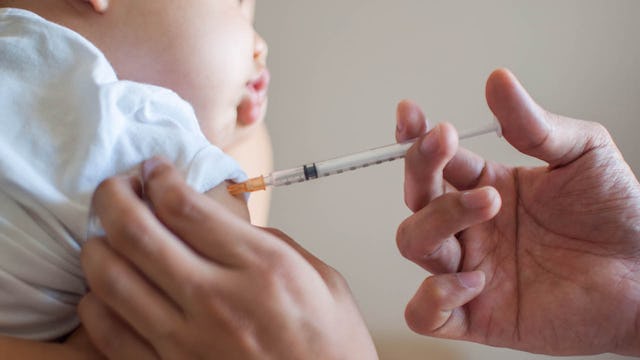WHO Names Anti-Vax Movement As A Top 10 Health Threat Of 2019

The anti-vax movement is causing worldwide concern
Each year, the World Health Organization releases a list of top health threats facing our world, which is used to form policies and create reform globally. For the first year, the group named vaccine hesitancy as one of its top ten threats to global health in 2019.
The WHO defines vaccine hesitancy as “the reluctance or refusal to vaccinate despite the availability of vaccines” and says this trend threatens to “reverse progress made in tackling vaccine-preventable diseases.”
In years past, the organization listed diseases such as measles or diphtheria (both of which made the list in 2018), but this year the organization decided to list the reason why preventable diseases have recently become an urgent health crisis: the anti-vax movement.
A recent study in the journal PLOS ONE reports this phenomenon has taken hold specifically in the past few years and caused many diseases once nearly eradicated by vaccinations to again become a health concern.
“Since 2009, the number of ‘philosophical-belief’ vaccine non-medical exemptions has risen in 12 of the 18 states that currently allow this policy: Arkansas, Arizona, Idaho, Maine, Minnesota, North Dakota, Ohio, Oklahoma, Oregon, Pennsylvania, Texas, and Utah,” the PLOS ONE authors wrote.
One such disease is measles. According to the CDC, nearly everyone in the U.S. got measles before there was a vaccine, and hundreds died every year as a result. Once a vaccine became available, cases have been almost non-existent.
In 2018, 349 individual cases of measles were confirmed in 26 states and the District of Columbia — the second-highest number of annual cases reported since measles was eliminated in the U.S. in 2000.
The CDC data does show that the number of people between the ages of 19 to 35 to receive the recommended vaccines has remained stable. However, the percentage who have received no vaccinations has quadrupled since 2001. This puts not only the health and safety of those unvaccinated at risk but those who are unable to receive vaccines as well.
According to a study cited in the Los Angeles Times, researchers found anti-vaxxers tend to be among the first to get sick when an outbreak occurs, and that they also can become a “key accelerant,” spreading the illness to others not immune.
Other top health concerns on WHO’s list include the global influenza pandemic, antimicrobial resistance (drug-resistant “superbugs”), humanitarian crises, and the lack of primary health care.
WHO plans to address these threats with a new five-year plan, The 13th General Programme of Work, starting in 2019. The plan aims to “ensure access to universal health coverage, protection from health emergencies, and improved health and well-being for billions of people.”
Addressing vaccines specifically, WHO will ramp up work to eliminate cervical cancer worldwide by increasing coverage of the HPV vaccine, among other interventions. We can all do our part by receiving vaccinations and ensuring our health, and the health of those around us, remains uncompromised.
This article was originally published on